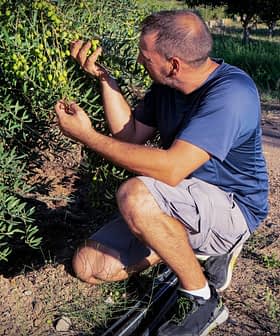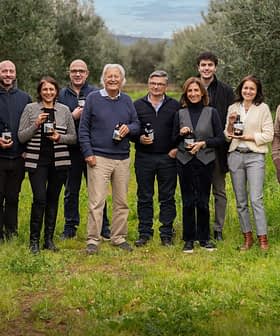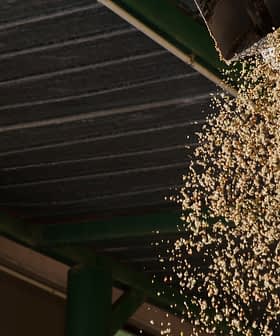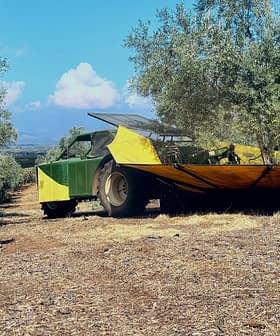Best Practices for Producing Flavored Olive Oil
The polyphenol content of flavored olive oil produced by addition of herbs to crushed olives before the malaxation step was almost three times higher than that of untreated olive oil.
Flavored olive oil has been used since ancient times for medicinal and cosmetic purposes, and is now commonly used in cooking and as a salad dressing. Researchers have found that adding herbs to olive paste before the malaxation step during extraction, along with ultrasound treatment, can increase the polyphenol content and radical scavenging activity of flavored olive oil.
While olive oils flavored with different herbs and spices are becoming popular, use of flavored olive oil is not a new trend. In fact, olive oil infused with fennel, sesame, juniper, mint, celery, sage, watercress, flowers and other spices was used by ancient Romans, Greeks and Egyptians as medicine and in cosmetics. Nowadays, flavored olive oil is used in specialty salad dressings, pasta dishes and as an appetizer for dipping bread.
The most common process of preparing flavored olive oil is the infusion method. This is a time-consuming process where finely ground herbs are soaked in olive oil for specified lengths of time accompanied by periodic shaking. In the final step, the olive oil is filtered to remove traces of the flavoring agents.
However, as popularity and demand for flavored olive oil increases, there is the need to find a faster method to produce flavored olive oil without sacrificing quality or nutritional value of the EVOO.
To this end, researchers from the University of Bari in Italy tried to streamline the process of producing flavored olive oil on a large scale.
Their aim was to study different methods for the production of flavored olive oil that would not only enhance the quality of the flavored olive oil but also extend the shelf life without compromising the chemical characteristics, polyphenol content and radical scavenging activity of the olive oils.
For the study, the researchers extracted olive oil from olives harvested from olive groves in Andria, Italy in the 2013 – 2014 crop seasons and flavored it with two popular herbs, oregano and thyme.
The three methods used to flavor olive oil were simple infusion of olive oil with ground herbs; adding herbs to crushed olives before the malaxation step during extraction of olive oil; and adding herbs to crushed olives before the malaxation step during extraction of olive oil and treating the with energy produced by sound waves using ultrasound technology. The use of ultrasound technology boosts cavitation, which could be used to optimize aromatization of the olive oils with herbs.
The researchers determined the acidity, peroxide values , radical scavenging activity and polyphenol content of the flavored olive oil to assess the quality of the treated oils.
Results showed that the flavoring method did not affect the acidity of the olive oil and all flavored olive oils had low values for acidity, peroxide value, K232 and K270.
However, irrespective of the method used to flavor olive oil, the addition of herbs was found to significantly increase the total polyphenol content of the flavored olive oil. The greatest increase in polyphenol content was observed in flavored olive oils produced by the addition of herbs to crushed olives before the malaxation step, which was almost three times higher than that of the control or untreated olive oil.
The authors hypothesize that the water in olive paste may act as a solvent and improve extraction of organic acids into the oil while the continuous mixing of olive paste could possibly play a part in increasing release of polyphenols from oregano and thyme into the olive oil.
The ultrasound treatment of olive paste was effective in maintaining the quality of flavored olive oil and found to increased the total polyphenol content of olive oil by about 13 percent. This could be possibly due to disruption biological cell walls of the crushed olives and herbs by energy produced by the ultrasound technology. This method was found to increase the concentration of the polyphenols — tyrosol, hydroxytyrosol and oleuropein in the flavored olive oils.
Furthermore, the addition of herbs to the olive paste before the malaxation step also improved the radical scavenging activity of the flavored olive oils.
According to the authors of this study, efficient and effective large-scale production of flavored olive oil can be achieved by adding herbs to olive paste before the malaxation step to produce olive oils with higher concentrations of total polyphenols and increased radical scavenging ability. They recommend testing the suitability of this method in producing olive oil flavored with vegetables, fruits, spices and other herbs as well.









